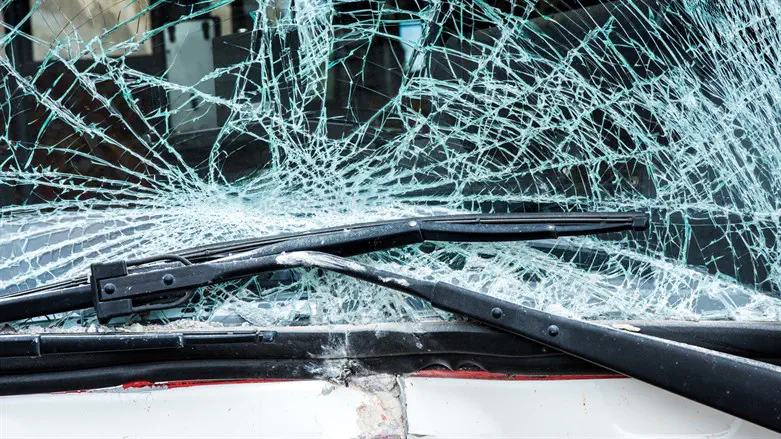
Being involved in a car accident can be a distressing and disorienting experience. In the chaotic aftermath, knowing the right steps to take is crucial for your safety, the well-being of others involved, and the successful resolution of the incident.
This article serves as a comprehensive crash course, providing a step-by-step guide on what to do immediately after a car accident. By following these essential steps, you can navigate the situation with confidence, protect your legal rights, and ensure a smoother claims process.
Ensure Personal Safety:
The first priority after a car accident is personal safety. While the adrenaline rush may cloud your judgment, it's important to stay calm and take immediate action to prevent further harm. Move your vehicle to a safe location, if possible, and turn on your hazard lights to alert other drivers. Check yourself and others involved for injuries, and if necessary, call for medical assistance immediately. Remember, it's crucial to prioritize your well-being and that of others involved.
Contact Emergency Services:
Once personal safety has been addressed, it's essential to contact emergency services. Dial the appropriate emergency number to report the accident and request medical assistance and police presence. Even if injuries seem minor, it's important to have a record of the incident. The police report will provide valuable documentation for insurance claims and legal proceedings.
Document the Incident:
Gathering accurate information about the accident is crucial for insurance claims and legal purposes. Take the time to document the incident thoroughly. Start by exchanging driver information, including names, contact details, and insurance information. If there are any witnesses present, collect their statements and contact information as well. Additionally, take photos of the accident scene, the damage to vehicles, and any visible injuries. These visual records will serve as vital evidence during the claims process.
Assess Vehicle Damage:
Assessing the damage to your vehicle is an important step in the immediate aftermath of a car accident. Take detailed photographs of the damage from multiple angles. If the accident involved other vehicles, make sure to also document their damage. This documentation will be crucial when filing an insurance claim and estimating the cost of repairs. Furthermore, it's advisable to avoid discussing liability or accepting blame at the scene, as this may complicate the claims process.
Seek Medical Attention:
Even if injuries appear minor or nonexistent, it's crucial to seek medical attention after a car accident. Some injuries, such as whiplash or internal trauma, may not manifest immediately but could have long-term consequences if left untreated. Visit a healthcare professional to evaluate your condition thoroughly. Medical records documenting your injuries will not only ensure you receive the necessary treatment but also serve as valuable evidence during the claims process.
Communicate with Insurance Providers:
Promptly reporting the accident to your insurance provider is essential. Contact your insurance company as soon as possible to initiate the claims process. Provide them with accurate and comprehensive details of the accident, including the date, time, location, and a factual account of what happened. Cooperation and transparency are key during these communications. Be prepared to provide the photos and documentation you collected, as they will support your claim.
Follow Legal and Reporting Requirements:
Each jurisdiction has specific legal and reporting requirements regarding car accidents. Familiarize yourself with these obligations to ensure compliance. Some jurisdictions may require filing an accident report with the local authorities within a specific timeframe. Understand any necessary forms, reports, or deadlines you need to adhere to. Failing to meet these requirements may result in legal consequences or complications with your insurance claim.
During the complex process of handling insurance claims, navigating legal procedures, and seeking compensation, it is highly advisable to seek the guidance and expertise of a skilled lawyer who specializes in dealing with the aftermath of an NYC rollover accident.
Conclusion:
Being involved in a car accident is a stressful and overwhelming experience. Knowing what to do immediately after a car accident can make a significant difference in the outcome of the incident. By following this crash course, you can prioritize personal safety, protect your legal rights, and facilitate a smoother claims process. Remember to ensure personal safety first, gather necessary information, and contact emergency services. Document the incident through photographs and witness statements, and assess the damage to your vehicle. Seek medical attention to address any potential injuries, and promptly communicate with your insurance provider to initiate the claims process. Staying calm and collected while taking these steps will help protect your well-being, facilitate the claims process, and ensure a more favorable outcome.
Additionally, it's crucial to familiarize yourself with the legal and reporting requirements specific to your jurisdiction. Understand the necessary forms, reports, and deadlines you need to comply with to avoid any legal complications. By adhering to these obligations, you can ensure a smoother resolution of the incident and protect your rights.